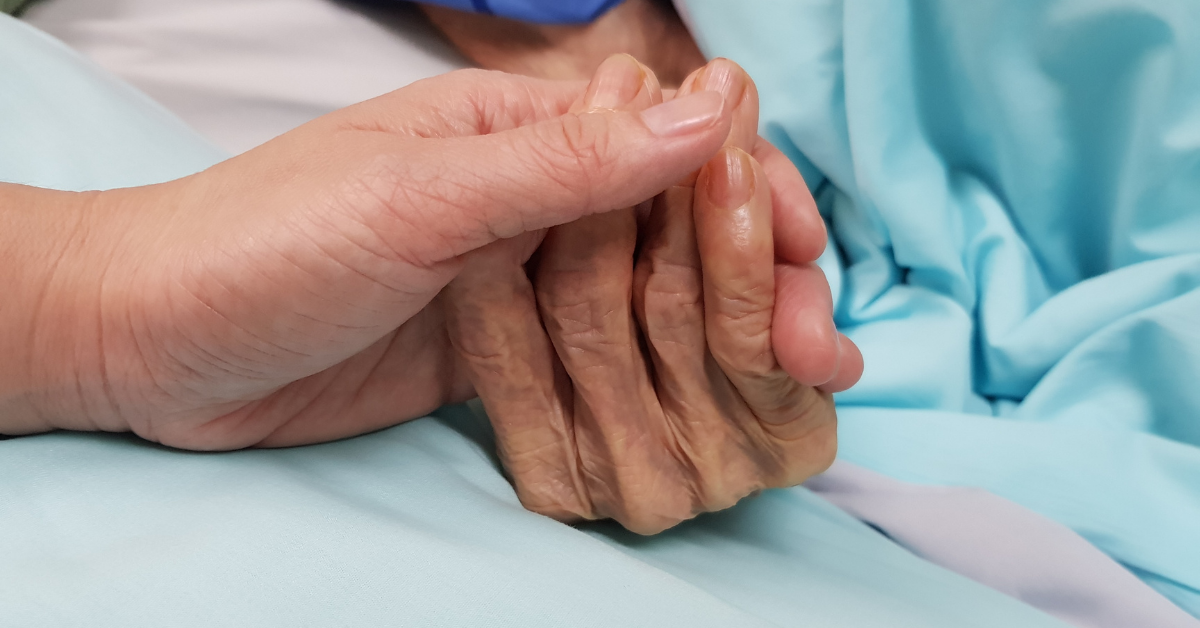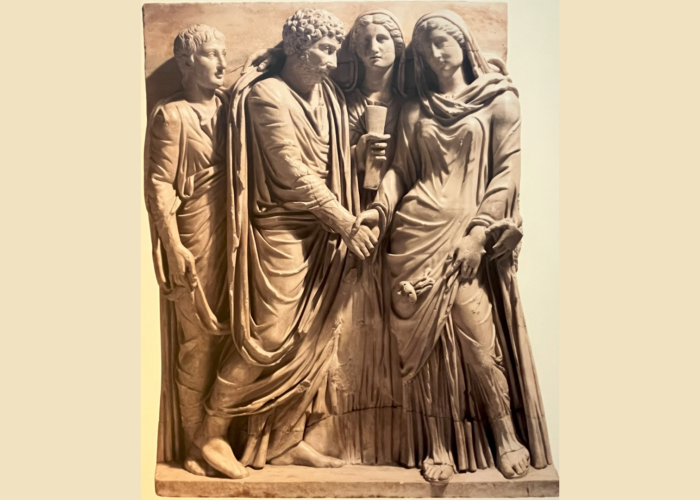I live in NSW Australia, in which the Voluntary Assisted Dying Act 2022 will come into effect by the end of 2023. This will legalise voluntary physician-assisted suicide for those with a terminal illness (it has various conditions and safeguards embedded within it). Despite this inevitable legal change, I believe there is value in ongoing moral reasoning, particularly as further legislative adjustments are no doubt undertaken in the years ahead. The following does not represent, by any means, a full discussion of the ethical complexities of euthanasia, but it does offer three ways in which I believe it will change us—and not for the better.
1. Those most vulnerable may feel pressure (perceived or real) to end their lives
The legislation is quite specific. To access voluntary assisted dying the individual must have decision-making capacity and be acting voluntarily. The obvious reason for such specificity is that there can be no room for error—the decision is irreversible as are the consequences for loved ones that remain behind. Yet, decision making is never a simple process. People make different choices about the same issue at different times of their lives. Moreover, consent is complex. Acting voluntarily is difficult to measure—the legislators know this and require two independent doctors to assess the person’s request. Having worked as a Registered Nurse in palliative care, I believe the notions of voluntary and consent are far from simple. Facing terminal disease is a vulnerable experience—people fear the unknown, they feel disempowered by their disease, and even by the healthcare system they find themselves in. Furthermore, they may also worry about their perceived burden upon their loved ones and understandably, such a range of concerns can then lead to accompanying anxiety and depression. Laws that seem manageable in the ‘laboratory’ are often difficult to administer out in the ‘wild’.
Indeed, I have deep concerns about the creeping normalisation of the thought that not everyone should live – that some are better off dead.
In my experience it was uncommon to come across someone that did not want to ‘fight for life’, at least in some way. The sufferer knew we were all on their side and that we would do all in our power to ease their suffering. But legislating for euthanasia, in my view, will shift the culture and expectations – it will invite those, who would have never otherwise considered themselves a burden, to wonder if they should ‘fight’ for death rather than life. At the most vulnerable time of their lives, they may wonder who is on their side.
Surely such vulnerabilities may undermine a sufferer’s personal agency and decision-making capacity? If some of our most vulnerable end their lives in such a manner, surely we are not a better society for it.
2. The relationship of trust between a doctor and their patient may be undermined
I noted above, from my perspective as a (former) Registered Nurse, about my experience of palliative care patients who were able to approach their disease and impending death under the shared assumption that their health care team were committed, at all times, to their holistic well-being. Physician-assisted suicide, in my view, complicates and may even undermine these shared expectations. In an Undeception+ podcast episode: Against Euthanasia Extra — The Doctor/Patient Relationship, two distinguished Palliative Care specialists were interviewed by John Dickson. Among the many comments they offered were the following:
“Trust is so key to the doctor-patient relationship and some people, for whom euthanasia is not something they would normally consider, may feel worried that they will be offered it.”
“The elephant in the room has just got bigger and this risks misunderstandings and undermines the type of collaborative relationship based upon shared goals.”
“Euthanasia undermines the basic ethos of medicine—this is not a job for doctors.”
Interestingly, on this last point, the peak professional body in Australia, the Australian Medical Association agrees, as does the World Medical Association (see here Euthanasia and Physician Assisted Suicide | Australian Medical Association [ama.com.au]). If these professional voices are credible, then undermining the trust within the doctor-patient relationship will not change us for the better.
3. The value of the sufferer’s life is undermined
I have left the most important concern to last: what value are we really placing upon someone’s life? In his book, Ethical Basics for the Caring Professions, Dr Graeme McLean devotes a chapter to the applied ethical issue of euthanasia. He makes the case that our moral duty is not simply to grant a request for assisted suicide but rather provide real personal support that meets the deeper need that gives rise to such a request. He points out that the case for euthanasia
“appeals to what the patient wants. But as we analyse that want, and what gives rise to it, we see that its very existence indicates a failure of, or at least the need for, care on our part. So our acceding to what he wants would be inconsistent with our duty of care towards him. Our duty, rather, is to provide the very care that will dispel the want.”[1]
McLean is arguing that our duty of care runs much deeper than providing death to those who want it. Indeed, our usual societal response to those wishing to self-harm due to mental illness is to ensure they do not carry out their wish—we treat such a desire as a tragedy. Advocates of euthanasia will no doubt argue that a terminal disease is different from this type of mental distress and of course there is truth in that claim, but also much complexity. For example, if we accept that some people’s mental distress is an invalid reason to assist them to die (as is the case with those suffering from a non-terminal disease), how do we distinguish between the validity of requests among those who do indeed have a terminal condition? Could someone have a terminal disease and be also experiencing mental illness which undermines their capacity to make a decision for their own best interests? If their mental health were improved, would they perhaps change their mind as to whether they wished to die prematurely?
Moreover, if the premise of the legislation, for euthanasia advocates, is an individual’s right to die, why then would we limit its provision to only those suffering terminal disease and likely to die within six (or twelve for some conditions) months? Indeed, given that mental illness is framed within a disease model framework, why are those suffering such illnesses excluded from the provision of euthanasia? These underlying presuppositions, that the individual has the right to choose, has led to an inevitable widening of its application in the overseas experience. For example, Aurelia Brouwer, a 29 year-old Dutch woman with mental illness accessed legal euthanasia in 2018 (see The troubled 29-year-old helped to die by Dutch doctors – BBC News). Indeed, the official record indicates that 83 people were euthanised in the Netherlands during 2017 on the grounds of psychiatric suffering.
The truth is that legalising euthanasia represents a fundamental societal shift in what we understand as the value of personhood. McLean describes it as a
“contest between what are in effect two utterly different attitudes towards the patient. On the one hand: ‘You regard yourself as no longer of any worth. We agree. Here, be our guest. End it all.’ On the other hand: ‘You may feel yourself to be worthless, but we attach great value to you. And we want to demonstrate your value by our care for you.’”[2]
Rather than simply acceding to what a person may want, McLean argues that what we owe to another is “the greatest good that we can provide . . . the life-enriching care . . . that will show him that his life, that he himself, has worth and value, even through the process of his dying.”[3]
Euthanasia has been legislated because we have already changed
I am not suggesting that the arguments for euthanasia are not powerful. They arise out of compassion (as the arguments against also do) and they are genuinely seeking to listen to the voice of those suffering. However, might those voices, even in some cases, be too vulnerable to make such a definitive and irreversible decision? Could there be deeper needs to care for than those which are being expressed at one particular point in time? And how will this legislation not ultimately broaden its application, as it has overseas, and provide physician-assisted suicide to persons other than those suffering from terminal disease? Euthanasia will change us (and I think not for the better), but the truth is that the legislation has come about because there has been a shift in how we understand the value of human life. We, as a society, have already changed, and sadly, I think we have not changed for the better.
Note: By euthanasia I mean the intention to cause death. I do not mean the standard practice of alleviating suffering which may unintentionally, as a result, hasten death.
For a fuller treatment of this issue you may wish to view this 2007 article by Christian Ethicist Andrew Cameron. If the web link is broken you can view the PDF here.
[1] G. R. McLean, Ethical Basics for the Caring Professions: Knowledge and Skills for Thoughtful Practice (Abingdon, Oxon: Routledge, 2022), 182.
[2] McLean, Ethical Basics, 184.
[3] McLean, Ethical Basics, 182–183.



